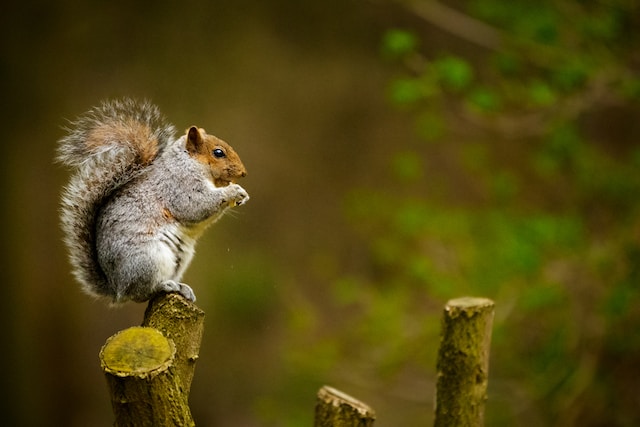Introduction: When we think of squirrels, an image of these agile creatures nibbling on nuts often comes to mind. Nuts play a vital role in the diet of squirrels, providing essential nutrients and energy. In this article, we explore the significance of various nuts in the squirrel diet, from the beloved acorns to the nutritious walnuts and beyond.
- Acorns: Nature’s Nutritional Powerhouses Acorns, the iconic nuts of oak trees, are a staple in the squirrel’s diet. These nutrient-dense powerhouses provide squirrels with a rich source of carbohydrates, fats, and protein. Acorns are abundant in forests, and squirrels possess a remarkable ability to gather and store them for future consumption. Their strong jaws allow them to crack open the tough outer shells to access the meaty kernel inside.
- Walnuts: A Delicacy for Discerning Squirrels Walnuts are another prized nut in the squirrel diet. These hard-shelled nuts are packed with healthy fats, protein, and antioxidants. Squirrels exhibit impressive ingenuity in cracking open the walnuts’ tough shells. They often employ creative methods, such as dropping them from heights onto hard surfaces, to access the valuable nutmeat inside. Walnuts provide squirrels with a nutritious boost, especially during the colder months when food resources are scarce.
- Hickory Nuts: A Flavored Nutritional Bonanza Hickory nuts are highly sought after by squirrels due to their delicious flavor and nutritional value. These large, hard-shelled nuts contain a balanced mix of protein, carbohydrates, and fats. Squirrels employ their sharp incisors to crack open the hickory nut shells, revealing the rich and creamy kernel within. Hickory nuts serve as an energy-dense food source, supporting squirrels’ active lifestyles and helping them endure challenging conditions.
- Pine Nuts: A Gourmet Delight for Squirrels Pine nuts, harvested from the cones of various pine tree species, are a gourmet delight for squirrels. These small, elongated nuts are packed with protein, healthy fats, and essential minerals. Squirrels deftly extract the pine nuts from the pine cones, often gnawing at the base of the cone scales to access the hidden treasure within. Pine nuts provide squirrels with a flavorful and nutritious food source, contributing to their overall health and vitality.
- Beyond the Classics: Exploring Other Nutritional Gems While acorns, walnuts, hickory nuts, and pine nuts are some of the most well-known nuts in the squirrel diet, squirrels are also known to consume other types of nuts. These may include chestnuts, beech nuts, hazelnuts, and more, depending on the squirrel’s habitat and availability of food sources. Each of these nuts offers unique nutritional profiles, ensuring a varied and balanced diet for squirrels.
Conclusion: Nuts are a cornerstone of the squirrel diet, providing essential nutrients, energy, and sustenance. From the abundant acorns to the flavorful walnuts and the diverse array of other nut varieties, squirrels exhibit remarkable foraging skills to procure these nutritional gems. By consuming nuts, squirrels maintain their agility, endurance, and overall health, making them the beloved acrobats of our natural world.
Note: This article is based on general information about the role of nuts in the squirrel diet. For a comprehensive understanding of specific squirrel species and their dietary preferences, it is advisable to refer to scientific studies and consult experts in the field.




